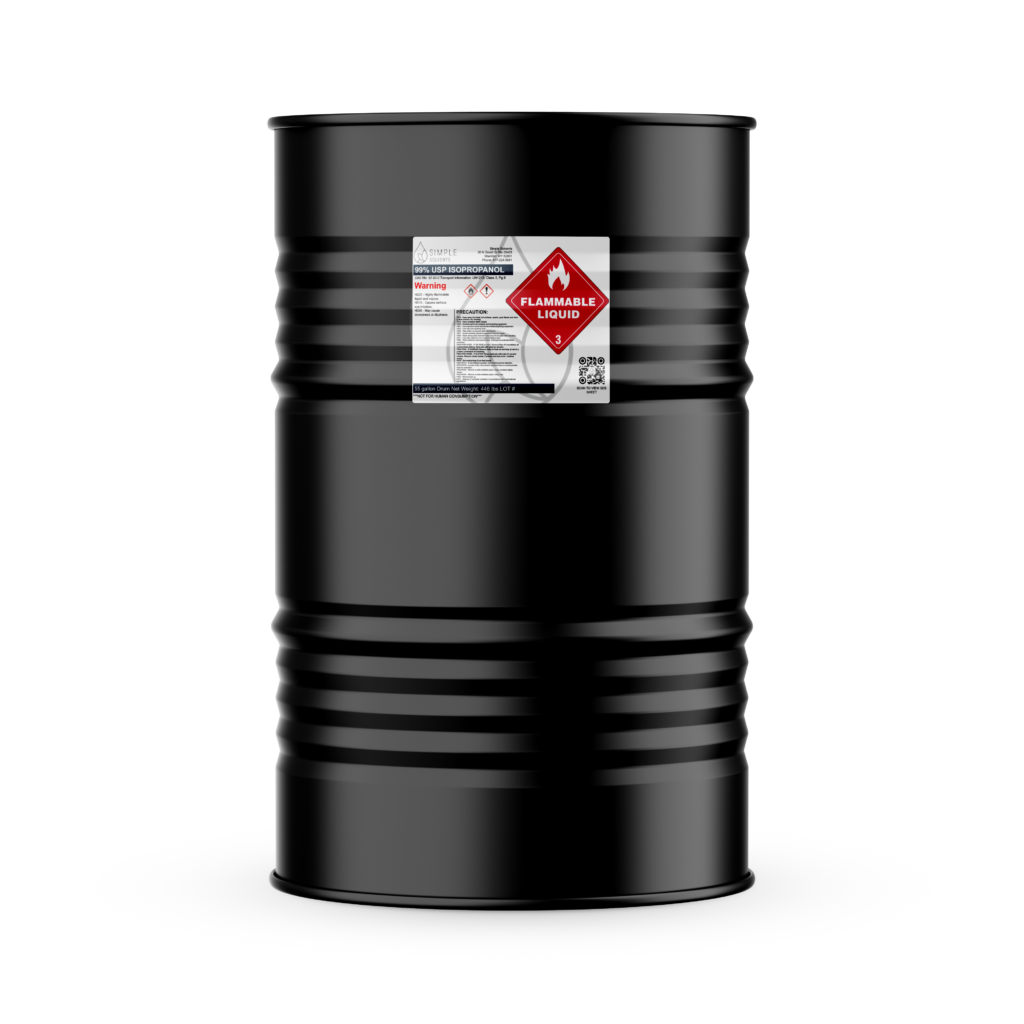Ethyl Alcohol Vs Isopropyl Alcohol

Ethyl Alcohol Vs Isopropyl Alcohol
Although washing hands with soap and water is the most effective way of fighting germs, washing sinks are not available all the time. Hand sanitizers keep germs at bay when soap and water are absent. Hand sanitizers are either alcohol-based or alcohol-free. Alcohol-based sanitizers contain 60-90% isopropyl or ethyl alcohol
Although both alcohols have antimicrobial properties when diluted in water, they have significant differences in their properties. This article explains the difference between the two alcohols regarding their antimicrobial properties, effectiveness, and safety to the skin.
Let’s get started with the Ethyl Alcohol Vs Isopropyl Alcohol comparison.
Is Ethyl Alcohol The Same As Isopropyl Alcohol?
Both ethyl alcohol and isopropyl alcohol have the same molecular structure but different chemical structures. They contain a hydroxyl group bonded to a saturated carbon atom, and their chemical differences make one safe and the other dangerous for human consumption.
Ethyl Alcohol
Also called ethanol, ethyl alcohol is a colorless liquid and a natural byproduct of plant fermentation. It is the most common ingredient in alcoholic beverages with a C2H5OH chemical structure.
Ethyl alcohol is also used in antiseptics, disinfectants, and astringent in cosmetics and beauty products. Its effectiveness in killing bacteria, fungi, and viruses makes it an effective ingredient in hand sanitizers. It’s also used as a solvent in paints, cleaning products, food additives, and fuel.
Isopropyl Alcohol
Isopropyl alcohol, aka 2-propranolol or rubbing alcohol, is the most common disinfectant in hospital pharmacies. It’s different from ethyl alcohol because it has one more carbon and two more hydrogen atoms in its structure. Thus, it is used to manufacture industrial and home care chemicals such as antiseptics, detergents, and disinfectants.

Ethyl Alcohol Vs. Isopropyl Alcohol In Hand Sanitizers
Alcohols formulate broad-spectrum hand sanitizers, but the alcohol content determines the sanitizer’s effectiveness in killing bacteria, fungi, and viruses.Thus,the center for disease control (CDC) recommends a concentration of 60% or more.
Both ethyl alcohol and isopropyl alcohol work by protein denaturation. The alcohols disrupt proteins and lipids in bacteria leading to their death. According to the CDC, ethyl alcohol is effective against various bacteria such as Pseudomonas Aeruginosa, E.coli, Salmonella typhosa.
A 60-80% ethyl alcohol concentration effectively kills lipophilic viruses like herpes, vaccinia, and influenza. It’s also effective in killing hydrophilic viruses like adenovirus, rotavirus, and Rhinovirus. However, it is not effective against the Hepatitis A virus. On the other hand, isopropyl alcohol is effective against enveloped viruses like Covid 19.
Ethyl Alcohol Vs. Isopropyl Alcohol For Skin Health
Both ethyl alcohol and isopropyl alcohol work better in the concentration of 65-90%. Ethyl alcohol is used in many products that directly contact the skin. For instance, it’s used in disinfectants, mouthwashes, and hair sprays.
Although there have been concerns about the possibility of ethyl alcohol having carcinogenic properties, there is no scientific evidence to support those claims. A safety evaluation study on the effects of topical application of ethyl alcohol revealed that it does not cause skin damage, unlike isopropyl alcohol.
Ethyl Alcohol Vs. Isopropyl Alcohol: Are They Safe For Babies And Children?
It would be best to use hand sanitizers containing ethyl alcohol or isopropyl alcohol carefully around children. The FDA recommends adult supervision when using hand sanitizers on children below six years. Both alcohols can cause poisoning when used wrongly or accidentally ingested in large quantities.
When using sanitizer dispensers among children, position them safely to prevent squirting into the eyes. Sanitizer splashing into the eyes can cause severe irritation and damage. There is no need to worry about your child licking or using their hands to eat after using a hand sanitizer because it evaporates from the skin fast.
Ethyl Alcohol Vs. Isopropyl Alcohol For Home Cleaning
Both isopropyl and ethyl alcohol have broad-spectrum antimicrobial activity against bacteria, fungi, and viruses. However, they are not very effective against bacterial spores. Ethyl alcohol is effective against non-enveloped viruses like hepatitis, rotavirus, and adenovirus.
According to scientific studies,70% of ethyl alcohol is a powerful disinfectant and is considered superior to isopropyl alcohol. You can use both alcohols to disinfect small surfaces like thermometers and external surfaces of equipment.
This review aimed to determine the effectiveness of various alcohols on human Coronavirus. The results indicated that 62-80% of isopropyl alcohol and ethyl alcohol were effective in inactivating high concentrations of human Coronavirus. In the same review,95% concentration of these alcohols dehydrated the virus without killing it.
Why Not 100% Alcohol Concentration?
A 70% concentration of alcohol is the most effective against microbes. Alcohol acts by denaturing proteins and lipids in bacteria and causing cell death.
However, bacteria create a protective shell when exposed to alcohol. Higher alcohol concentrations evaporate fast, leaving inadequate time to break the bacteria’s protective shell. Thus, adding water to alcohol reduces the evaporation rate and increases its efficiency against germs.
Conclusion
Ethyl alcohol has the same molecular structure as isopropyl alcohol but has different chemical structures. Thus, it’s unsafe to ingest isopropyl alcohol while it’s safe to ingest ethyl alcohol.
Both alcohols have antimicrobial properties and are used to make hand sanitizers when diluted to 60-90%. Additionally, ethyl alcohol is preferred because it’s less damaging to the skin. They also have applications in cleaning products and are used to disinfect small surfaces like equipment parts and thermometers in pharmaceutical settings.
The FDA recommends supervising children below six years using hand sanitizers to prevent squirting into the eyes or accidental ingestion. However, you should not worry about your kids licking their hands or using them to eat after applying a hand sanitizer because it evaporates and clears fast from the skin.
